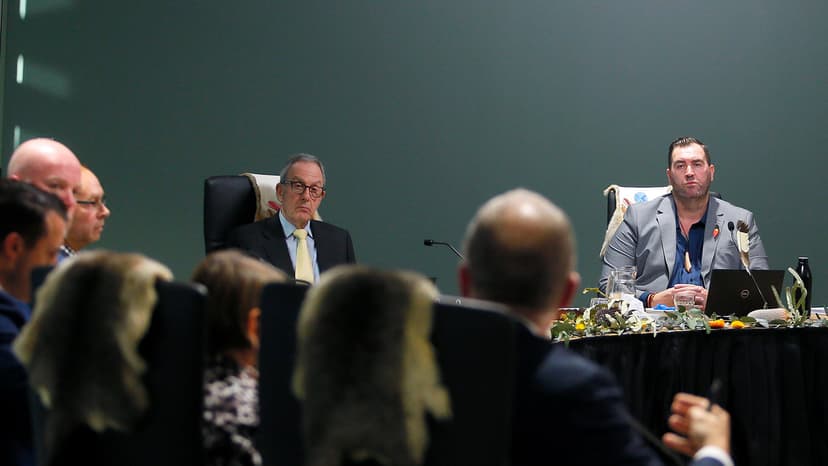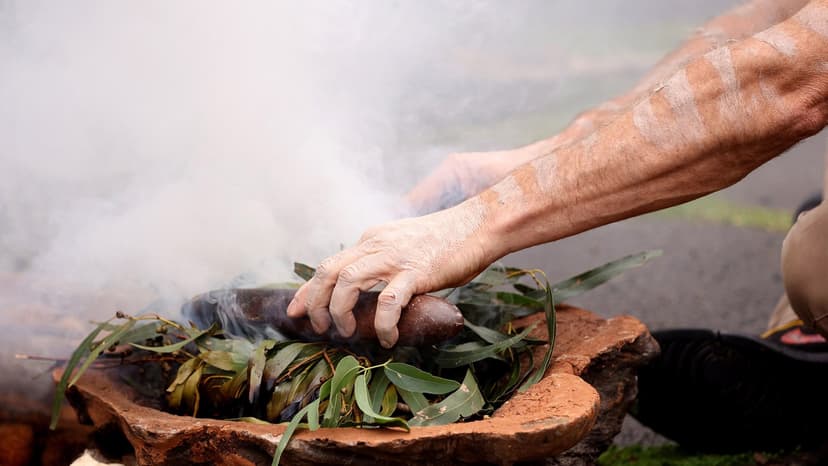Health
This page provides a brief overview of what Yoorrook heard during the health and healthcare inquiry, including the systemic issues that First Peoples experience in health and wellbeing, and some examples of key evidence.
This page has been adapted from the Yoorrook Justice Commission reports, which are fully referenced. For referenced information please view the reports linked on this page.
sensitive material warning
Please be aware that this page may contain sensitive material. Read our self care guidelines to help manage any feelings of distress.
Key findings
These key findings highlight the recurring themes, insights, and systemic issues shared by First Peoples during Yoorrook’s health inquiry.
The harms of colonisation echo across generations.
For example, First Nations children living in areas with recorded historical massacres experience poorer child developmental outcomes (including physical health, cognitive and communication skills, and emotional development) compared to First Nations children in areas with no known or recorded historical massacres.
Social determinants of health impact health and wellbeing.
Nationally, social determinants (including education, housing, employment, income, etc.) drive over a third of the health gap between Indigenous and non-Indigenous Australians (35 per cent).
Culture supports good health and wellbeing.
A survey of Victorians found that First Peoples who had attended a cultural event in the past year were more likely to report being in good health, compared to First Peoples who had not attended any Aboriginal cultural events.
Racism is toxic to Aboriginal health.
Racism contributes to around a third of the health gap between First Peoples and non-First Peoples in Victoria.
Nationally, interpersonal racism accounts for roughly half of all psychological distress among First Peoples.
First Peoples experience racism and a lack of cultural safety within the health system.
A 2022 survey found that in Victoria, 20.6 per cent of First Peoples surveyed reported experiencing racism in health settings within the previous 12 months.
First Peoples play a critical role in supporting cultural safety in hospitals and other healthcare settings but are often under-resourced, under-supported and under-paid.
First Peoples make up less than 1 per cent of the Victorian public health workforce, and less than 1 per cent of the Victorian Department of Health staff.
First Peoples experience mental health and social and emotional wellbeing injustices.
First Peoples often experience poor mental health and social and emotional wellbeing. Aboriginal people are more likely experience psychological distress, mental health challenges, and to be impacted by self-harm and suicide.
First Peoples are more likely to experience harms in the mental health system including compulsory treatment, seclusion and restraint.
First Peoples are often victim-survivors of family violence.
Estimating the extent of family violence is challenging due to various limitations of the current family violence system.
When seeking support First Nations women are often mis-identified as the perpetrator of violence, and experience further harms (including child removal and criminalisation).
The Crime Statistics Agency has reported that in Victoria in 2024 there were 6,578 ‘affected family members’ who were Aboriginal.
In 2023-34, 10.3 per cent of people presenting to Victorian emergency departments for injuries relating to intimate partner violence identified as Aboriginal.
The justice system perpetuates harm.
Most First Peoples who enter the criminal justice system have existing and complex un-met health needs including mental health challenges, disability, alcohol and other drug dependence.
The justice system harms First Peoples’ health, and further compounds existing health challenges.
First Peoples are not receiving adequate healthcare within the justice system.
Aboriginal Community Controlled Organisations (ACCOs) provide excellent healthcare but are under-funded and over-burdened.
ACCOs provide high-quality services, improve First Peoples health and wellbeing, and are key employers of First Peoples.
However, ACCOs are under-resourced and face administrative burdens. For example, ACCOs receive 0.4 per cent of the Victorian Department of Health’s total health service funding. Many ACCOs are required to formally report to funders every 2-3 business days.
What Yoorrook heard about health
Yoorrook heard from First Peoples and ACCOs, academics and experts, government representative, and the general public. Some key quotes that Yoorrook heard about health and wellbeing, and healthcare are shown below.
Hearings related to health
Yoorrook’s public hearings began in 2022, and were organised in hearing blocks focused on topic areas. Yoorrook heard from Elders in April and May 2022, and heard about the child protection and justice systems in December 2022, and between April and May 2023. A hearing block focused on land injustice was held between March and April 2024. A hearing block focused on social injustice (including health, education, housing, economic prosperity) was held from May 2024 to June 2024.
Public Hearings: 17 June – 21 June 2024
The purpose of these hearings was to gather evidence from the Minister for Mental Health, Minister for the Pervention of Family Violence, Minister for... more
Public Hearings: 13 June – 14 June 2024
The purpose of these hearings was to gather evidence from the Deputy Premier and Minister for Education, Secretary of the Department of jobs, Skills,... more
Public Hearings: 3 June – 7 June 2024
The purpose of these public hearings was to gather evidence from Aboriginal Community Controlled Organisations; the Vice-Chancellors of Monash Univers... more
Public Hearings: 27 May – 31 May 2024
The purpose of these public hearings was to gather evidence from Aboriginal Community Controlled Organisations, academics and the First Peoples' Assem... more
Videos about health and wellbeing
Watch videos of Yoorrook evidence related to health and wellbeing.
Professor Ray Lovett shares powerful truth
From birth, to childhood to parenting, watch Professor Ray Lovett share the powerful truth about the impact racism and structural failings have had on generations of First Peoples.
Health recommendations
Explore some of the recommendations made in Yoorrook for Transformation on housing.
Led by First Peoples, the Victorian Government must:
- Take legislative, administrative and other steps to eliminate racism against First Peoples from Victorian health settings;
- Legislate and fund the development of cultural safety service standards to be met by public and community health services (including those operating in custodial health settings). The standards should protect the cultural safety of First Peoples patients and families and First Peoples staff; and
- Explore the feasibility of setting up an accreditation process to assess services against the cultural safety service standards that is appropriately resourced and led by a First Peoples organisation with experience in the health sector.
The Victorian Government must:
- Fund all workforce actions in the Victorian Aboriginal Health and Wellbeing Partnership Agreement Action Plan, with a focus on extending student placements, internships, cadetships and graduate placements; and
- Increase First Peoples’ leadership and representation in the Department of Health, health services and health service boards. This must be reported on in annual reports
Explore other Focus Areas
First Peoples understand health and wellbeing in a holistic way, and health is also impacted by other aspects including education, housing, economic prosperity, and political life. Read more about these related focus areas by visiting the following pages.
Support Resources
If you feel overwhelmed you can call 13 YARN (13 92 76) or Lifeline (13 11 44) for confidential support. For additional support options, visit support resources.
Reports and Recommendations
Read the official reports and recommendations of the Yoorrook Justice Commission.
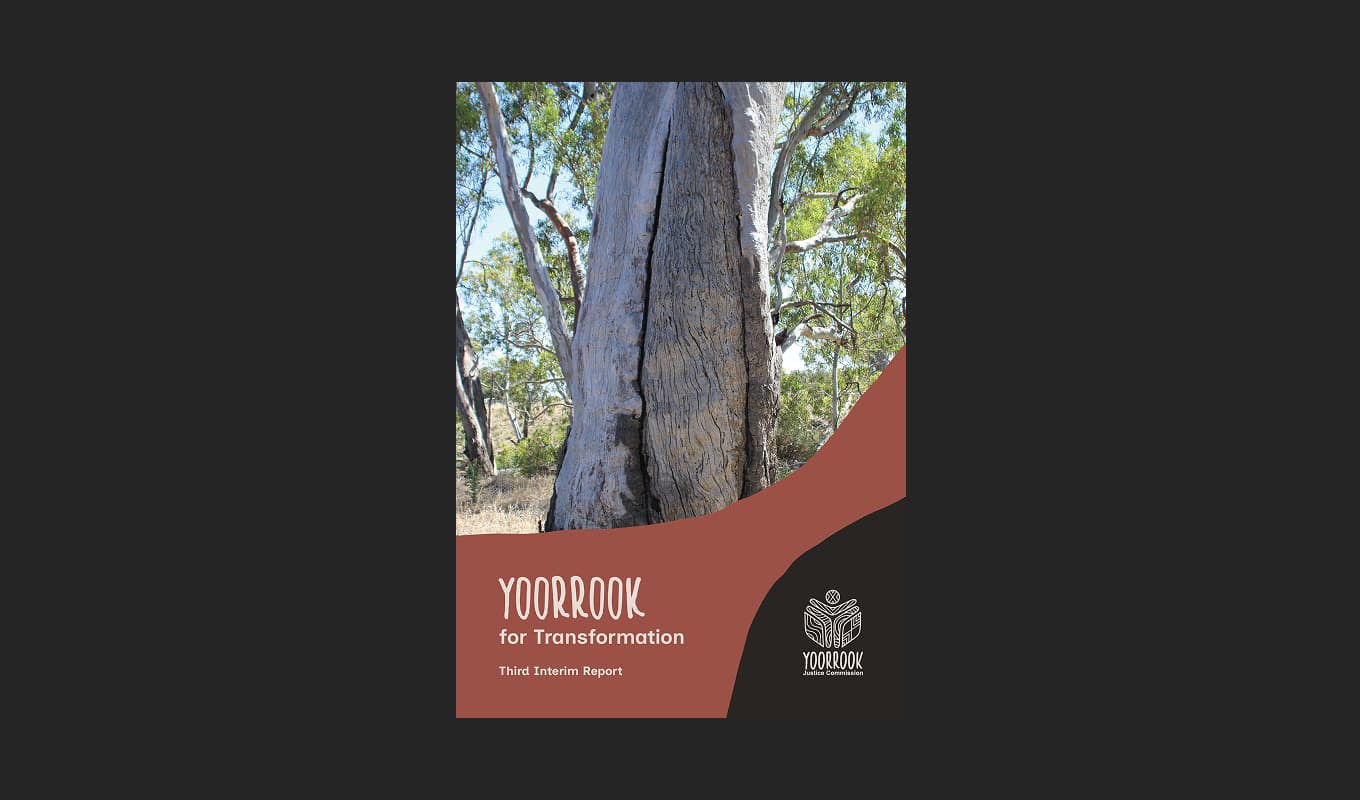
Yoorrook for Transformation
Third Interim Report: A five-volume comprehensive reform report presenting evidence and findings on systemic injustices, and specific recommendations for meaningful change to transform the future.
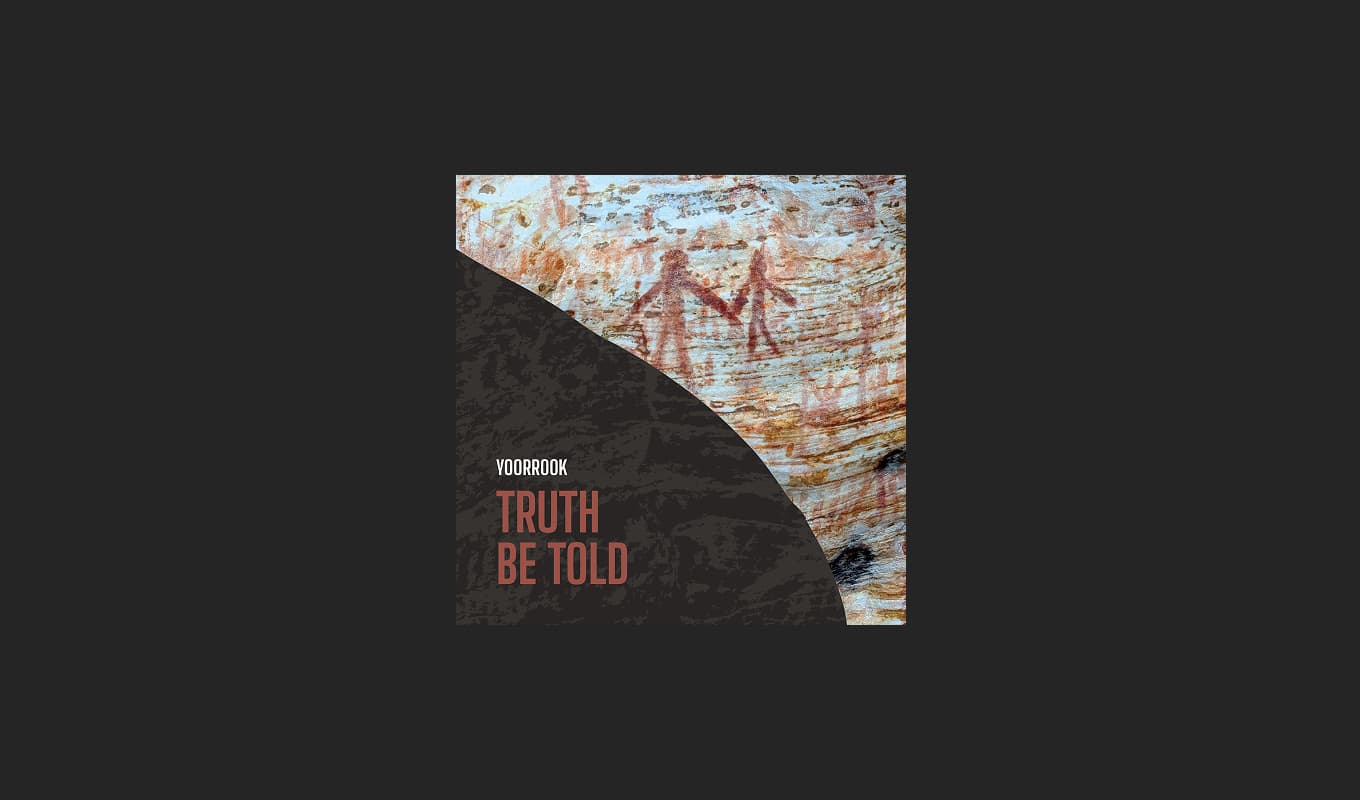
Truth Be Told
An official public record that documents First Peoples experiences since colonisation, preserves crucial testimonies for future generations and creates an enduring resource for education and understanding.
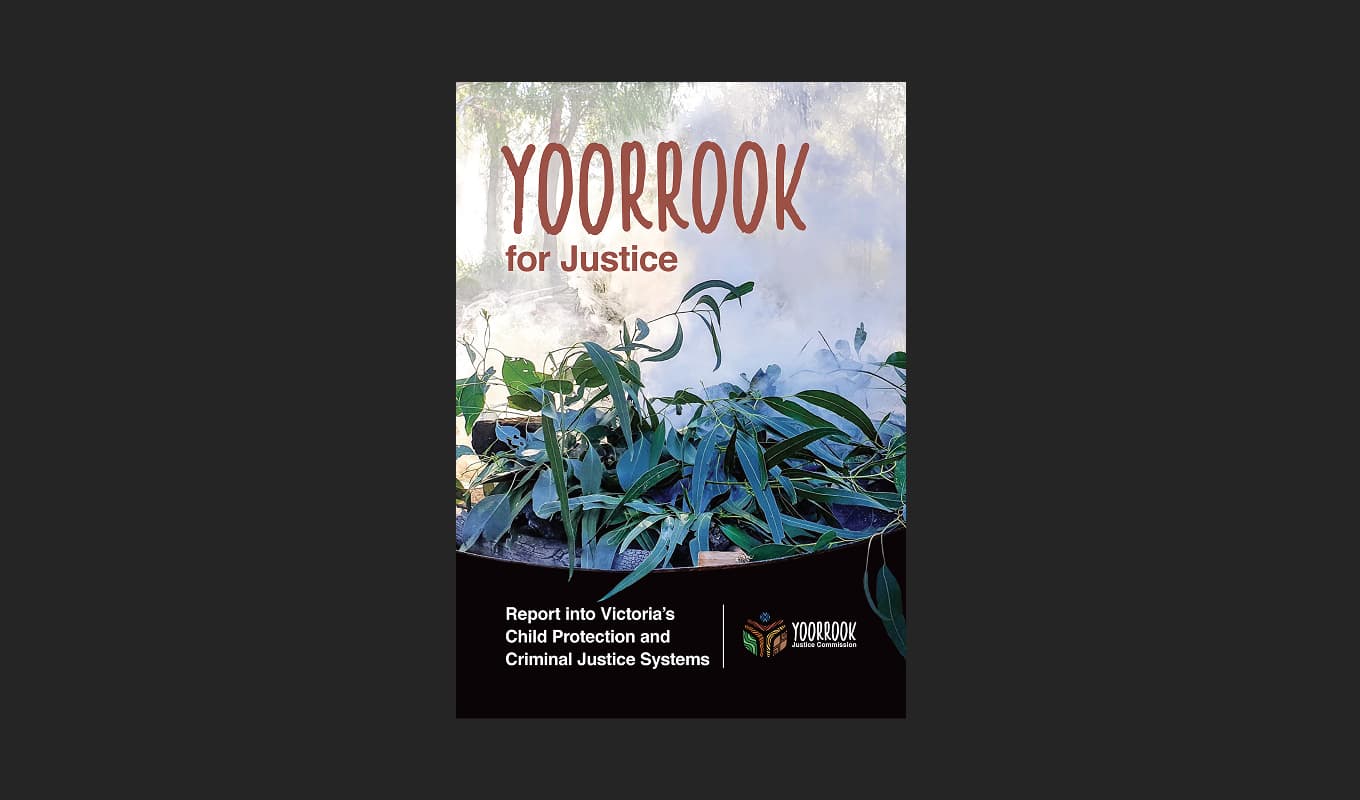
Recommendations for change
Yoorrook Justice Commission’s recommendations for truth-telling, justice, and systemic reform in Victoria.







